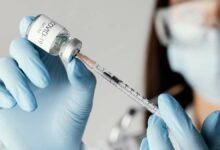Years till the earth
Have you ever wondered why extended UV exposure causes premature aging? The greatest area to research aging is on the skin, which is our biggest organ and our first line of defense against the environment. The focus of researchers trying to understand the mechanisms behind aging has recently shifted to oxidation processes, especially those made worse by UV exposure. This is where carotenoids, the unsung heroes of antioxidants found in nature, come to the fore.

These bright substances, which give plants their characteristic yellow, orange, and red coloration, coexist with chlorophyll in chloroplasts or independently in chromoplasts. They are not only beautiful to look at but also powerful health guardians. “Carotenoids act like conductors in your skincare, orchestrating defence against UV damage, free radicals, and stress for radiant skin harmony,” says dermatologist Meenakshi Jangid, who practices in Delhi.
How do carotenoids work?
Introducing the colorful family of carotenoids. Each component has a distinct function in maintaining human health, from the heart-healthy lycopene to the eye-protecting lutein.Gamma, beta, and alpha-carotene are components of the orange subgroup of carotenoids known as carotenes. Whereas beta-carotene splits into two vitamin A molecules, alpha- and gamma-carotene is converted into a single vitamin A molecule by enzyme activity.
Interestingly, not all carotenoids function as precursors of vitamin A. A sufficient consumption of beta- and alpha-carotene promotes tissue regeneration and inhibits the deterioration of many body components, hence avoiding vitamin A insufficiency. Compared to carotenes, the yellow or yellow-orange subgroup known as xanthophylls has a higher degree of structural variety. According to Priti Gupta, a nutritionist from Bengaluru, “capsorubin, capsanthin in paprika, and fucoxanthin in diatoms and brown algae, with its abundant masking of chlorophyll, exemplify the variety within this category.”
Why are carotenoids unique?
Carotenoids are potent antioxidants in addition to being pigments. Skin specialist Nidhi Sahai, who practices in Mumbai, says that “their ability to neutralise free radicals helps reduce inflammation, lowers cancer risk, combats heart disease, and even slows ageing.”
Environmental factors and genetic predispositions can contribute to skin aging. “Skin ages more quickly than other organs due to exposure to the environment. Developing solutions requires an understanding of the processes behind aging, according to Dr. Jangid.
Carotenoids as defense agents
Carotenoids show themselves to be powerful heart and eye defenders, offering defense against disorders including cataracts, stroke, prostate cancer, and cardiovascular diseases.Essential carotenoids lutein and zeaxanthin, which are found in the retina and protect against ocular pathologies, are the main contributors to eye health. They are essential for the healing of muscles after exercise.
Furthermore, carotenoids—beta-carotene and beta-cryptoxanthin, in particular—may lessen the chance of fractures and osteoporosis. Another important carotenoid that improves bone density and contributes to general bone health is lutein, according to nutritionist Mohit Tandon of the Max Multi Speciality Hospital in Noida.
Tandon highlights the benefits of carotenoids but cautions that they are “essential but not a panacea.” Carotenodermia may result from excessive consumption, thus they should be a part of a balanced diet.






